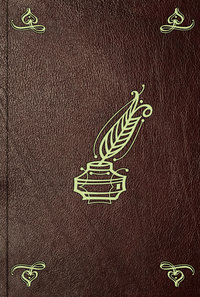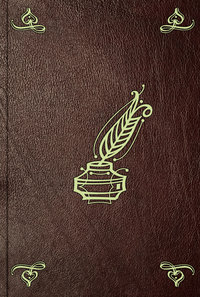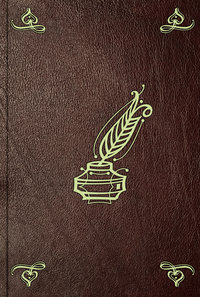 полная версия
полная версияThe Works of John Dryden, now first collected in eighteen volumes. Volume 16
During these transactions, Paul de Camerin and Francis Mansilla arrived at Goa, from Mozambique: Borba retained them both in the seminary, by permission from the viceroy; and that was the reason why they followed not Father Xavier to the coast of Fishery.
Xavier put into the seminary those young Indians whom he had brought along with him; and whatever want he had otherwise of his companions, he gave the charge of the Seminarists to Father Paul de Camerin, at the request of Borba, who had the chief authority in the seminary. For it was not till the year 1548, after the death of Borba, that the company possest it in propriety, and without dependence. It then received the name of a college, and was called the college of St Paul, from the title of the church, which was dedicated to the conversion of the apostle of the Gentiles. From thence it also proceeded, that the Jesuits were called in that country, the fathers of St Paul, or the fathers Paulists, as they are called in that country even at this day.
Father Xavier remained but a little time at Goa; and returned with all expedition to his Paravas, with the best provision of gospel labourers, which he could make. He was then desirous of sending a missioner of the company to the isle of Socotora, not being in circumstances of going thither in person; for he had not forgotten the promise, which he made to God in behalf of that people, when he left them. But the small number of companions which he had, was not sufficient for the Indies; and it was not till three or four years afterwards that he sent Father Alphonso Ciprian to Socotora.
Besides Mansilla, who had not yet received the order of priesthood, he carried with him to the coast of Fishery two priests, who were Indians by nation, and one Biscayner, called John Dortiaga. When they were arrived there, he visited all the villages with them; and taught them the method of converting idolaters to the faith, and of confirming those who were already Christians, in it. After which, having assigned to each of them a division at his particular province in the coast, he entered farther into the country; and, without any other guide than the spirit of God. penetrated into a kingdom, the language of which was utterly Unknown to him, as he wrote to Mansilla in these, terms.
"You may judge, what manner of life Head here, by what I shall relate to you. I am wholly ignorant of the language of the people, and they understand as little of mine; and I have no interpreter. All I can perform, is to baptize children, and serve the sick, an employment easily understood, without the help of an interpreter, by only minding what they want."
This was the preaching by which he declared Jesus Christ, and made the Christian law appear amiable in that kingdom. For amongst those barbarians, who reduce all humanity to the notion of not being inhuman, and who acknowledge no other duties of charity, than forbearing to do injuries, it was a thing of admiration, to see a stranger, who, without any interest, made the sufferings of another man his own; and performed all sorts of services to the poor, as if he had been their father, or their slave. The name of the country is neither known, nor the fruits which these works of charity produced. It is only certain, that the saint continued not there any long time; and that a troublesome affair recalled him to the coast of Fishery, when it was least in his intentions to return.
The Badages, who are a great multitude of robbers, in the kingdom of Bisnagar, idolaters, and enemies of the Christian name, naturally fierce, always quarrelling amongst themselves, and at war with their neighbours, after they had seized, by force of arms, on the kingdom of Pande, which is betwixt Malabar and the coasts of Fishery, made an irruption into the said coast, in the absence of Xavier. The Paravas were under a terrible consternation at the sight of those robbers, whose very name was formidable to them, not daring so much as to gather into a body, nor to hazard the first brunt of war. They took flight, and abandoned their country, without any other thought than of saving their lives. In order to which, they threw themselves by heaps into their barks, some of them escaping into little desart islands, others hiding amongst the rocks and banks of sand, betwixt Cape Comorin, and the Isle of Ceylon. These were the places of their retreat, together with their wives and children, while the Badages overran the coast, and destroyed their country.
But what profits it to have escaped the sword, when, they must die of hunger? Those miserable creatures, exposed to the burning heats of the sun, wanted nourishment in their isles, and on their rocks, and numbers of them daily perished.
In the mean time, the news of this excursion of the robbers, and the flight of the Christians, was spread about, and Xavier heard it in the country where he then resided. The misfortunes of his dear Paravas touched him in the most tender part. He made haste to their relief; and, having been informed that they were pressed with famine, he passed speedily to the western coast, and earnestly solicited the Portuguese to supply them in this their extreme necessity. He obtained twenty barks, laden with all manner of provision, and himself brought it to their places of retreat, where the poor Paravas, as many as were left alive of them, were languishing without hope of comfort, and expecting death to end their misery.
The sight of the holy man, whom all of them regarded as their common father, caused them to forget some part of their misfortune, and seemed to restore them to life. He gave them all imaginable consolation; and, when they had somewhat recovered their strength, he brought them back to their habitations, from whence the Badages were retired. Those plunderers had swept all away, and the Christians were more poor than ever; he therefore procured alms for them, and wrote a letter earnestly to the Christians of another coast, to supply their brethren in distress.
The Paravas being resettled by degrees, Xavier left them under the conduct of the missioners, whom he had brought for them, and turned his thoughts elsewhere. He was desirous to have carried the sound of the gospel into the more inland countries, which had never heard of Jesus Christ; yet he forbore it at that time, upon this account, that in those kingdoms where there were no Portuguese to protect the new Christians, the idolaters and Saracens would make war on them, or constrain them to renounce their Christianity to buy their peace.
Returning therefore by the western coasts, which were in the possession of the Portuguese, he travelled by land, and on foot, according to his custom, towards the coast of Travancore, which beginning from the point of Comorin, lies extended thirty leagues along by the sea, and is full of villages.
Being come thither, and having, by the good offices of the Portuguese, obtained permission from the king of Travancore to publish the law of the true God, he followed the same method which he had used at the Fishery; and that practice was so successful, that all that coast was converted to Christianity in a little space of time, insomuch, that forty-five churches were immediately built. He writes himself, "That in one month he baptized, with his own hand, ten thousand idolaters; and that, frequently, in one day, he baptized a well peopled village." He says also, "that it was to him a most pleasing object, to behold, that so soon as those infidels had received baptism, they ran, vying with each other to demolish the temples of the idols."
It was at that time, properly speaking, when God first communicated to Xavier the gift of tongues in the Indies; according to the relation of a young Portuguese of Coimbra, whose name was Vaz, who attended him in many of his travels, and who being returned into Europe, related those passages, of which himself had been an eye witness. The holy man spoke very well the language of those barbarians, without having learnt it, and had no need of an interpreter when he instructed. There being no church which was capable of containing those who came to hear him, he led them into a spacious plain, to the number of five or six thousand persons, and there getting up into a tree, that he might the farther extend his voice, he preached to them the words of eternal truth. There it was also, that to the end the compass of the plain might serve in the nature of a church, he sometimes celebrated the divine mysteries under the sails of ships, which were spread above the altar, to be seen on every side.
The Brachmans could not suffer the worship of the pagods to be abandoned in this manner; but were resolved to be revenged on the author of so strange an alteration. In order to execute their design, they secretly engaged some idolaters to lie in wait for him, and dispatch him privately. The murderers lay in ambush more than once, and in the silence of the night endeavoured to shoot him with their arrows. But divine Providence would not suffer their malice to take place; of all their arrows, one only wounded him, and that but slightly; as it were rather to give him the satisfaction of shedding some blood in testimony of the faith, than to endanger his life.
Enraged and desperate for having missed their aim, they sought him everywhere; and not finding him, they set fire on three or four houses, where they thought he might possibly be lodged. The man of God was constrained one day to hide in the covert of a forest, and passed the following night upon a tree, to escape the fury of his enemies, who searched the whole forest to have found him. There was a necessity sometimes that the faithful should keep guard about him day and night, and to that purpose they placed themselves in arms about the house where he was retired.
In the meantime, the Badages, who had ravaged the coast of Fishery the year before, animated of themselves against the Christians, and perhaps pushed forward by the devils, who saw their empire decaying day by day, excited also by the desire of glory, and above all things by the hope of booty, entered into the kingdom of Travancore, on the side of one of those mountains-which confine on the cape of Comorin. Their former success had rendered them so haughty and so insolent, that they flattered themselves with an imagination that every thing would bend before them. But not having now to do, as they had before, with simple fishers, they were come in good order, and well armed, under the conduct of the Naiche, or lord of Modure, a valiant and experienced captain.
The inhabitants of the maritime villages took fright at the noise of an hostile army; and retiring, for the most part with great haste and confusion into the inland country, carried even to the court the news of the invasion.
The king of Travancore, whom the Portuguese call the Great Monarch, because indeed he is the most powerful of all the kings of Malabar, collecting his army with all speed, put himself at the head of it, and marched towards the enemy. The battle, in all appearance, was likely to be bloody, and the victory seemed assured to those vagabond robbers, who were more in number, and better disciplined.
Father Xavier, so soon as he understood that the Badages were drawing near, falling prostrate on the ground, "O Lord," said he; "remember that thou art the God of mercies, and protector of the faithful: give not up to the fury of these wolves that flock, of which thou hast appointed me the pastor; that these new Christians, who are yet so feeble in the faith, may not repent their embracing it, and that the infidels may not have the advantage of oppressing those, who repose their confidence in none but thee."
His prayer being ended, he arose, and inspired with a more than human courage, which made him incapable of fear, he takes a troop of fervant Christians, and, with a crucifix in his hand, runs with them towards the plain, where the enemies were marching in battalia. When he arrived within distance of being heard, he stopped and said to them, in a threatening voice, "I forbid you, in the name of the living God, to pass farther, and on his part, command you to return the way you came."
These few words cast a terror into the minds of those soldiers who were at the head of the army; they remained confounded, and without motion. They, who marched after them, seeing the foremost advanced not, asked the reason of it; answer was returned from the first ranks, that they had before their eyes an unknown person habited in black, of a more than human stature, of a terrible aspect, and darting fire from his eyes. The most hardy were desirous to satisfy themselves concerning what was told them; they were seized with amazement at the sight, and all of them fled with a precipitate confusion.
The new Christians who had followed Xavier, ran to declare to the neighbouring villages this wonderful event. The fame of it was suddenly spread abroad, and the king, who was marching towards the enemy with great speed, heard the report of it on his way. He caused Xavier to be brought into his presence, and embraced him as the redeemer of Travancore; and after he had publicly thanked him for so eminent a service, he said thus to him: "I am called the Great Monarch; and, from henceforth, you shall be called the Great Father."
The saint gave the king to understand, that it was only Jesus Christ to whom he ought to pay his acknowledgments; and, as for himself, he ought only to be regarded as a weak instrument, who could do nothing of his own power. The Pagan king comprehended nothing of his meaning; and the two vices which are the common obstacles to the conversion of the great, that is to say, the concupiscence of the flesh, and pride of heart, hindered him afterwards from embracing of the faith; which notwithstanding, he caused an edict to be published throughout his kingdom, whereby all men were commanded to obey the Great Father, as they would his proper person; and that whoever desired to be a Christian, might be so without any apprehension of danger to ensue. He went so far as even to call Xavier his brother; and bestowed on him large sums of money, all which the servant of God employed in charities on the poor.
An edict so favourable to the law of our belief, made many Christians even in the court, though contrary to the example of the prince. But the miraculous actions of Xavier finished the conversion of the whole kingdom. Besides his curing all sorts of diseases, he raised four persons from the dead, two women and two men. The act of canonization relates no more of the resurrection of the women, but the bare matter of fact, without any circumstances; but the resurrection of the men is related at large, of which the substance is in the ensuing account.
Xavier preached in one of the maritime villages of Travancore, called Coulan, near Cape Comoriu. Some were converted by his first sermons; but the greater party remained in their ancient superstition, after having often heard him. The most obstinate, it is true, listened to him with delight, and found the maxims of the gospel to be most conformable to the light of reason: but the pleasure which they took in hearing, produced nothing; and they satisfied themselves with admiring the Christian law, without troubling themselves to follow it.
The father one day finding, that he spoke to them of God without working any thing upon their hearts, prayed fervently to the Almighty in their behalf; and, with his eyes lifted up to heaven, his countenance more than ordinarily inflamed, and with abundance of tears, besought him to take pity on those obstinate idolaters. "O Lord," said he, "all hearts are in thy hands; thou canst bend, as it pleases thee, the most stubborn, and soften the most obdurate; do that honour, on this day, to the blood and the name of thy beloved Son." Scarcely had he ended his prayer, when he was assured it was answered: turning himself to his audience, with the air of one inspired, "Well," said he, "since you will not believe me on my word, behold that which will make me be believed. What testimony do you desire from me, of those truths which I have declared to you?" At the same instant he recalled to his remembrance, that a man had been there buried the day before. Then resuming his discourse in the same tone that he began it, "Open," said he, "the sepulchre which you closed yesterday, and bring out the body; but observe carefully, whether he who was buried be truly dead."
The most incredulous ran hastily to take up the corpse; far from finding any the least sign of life, they perceived it began to putrify with a noisome scent. They took off the linen in which he was wrapped, and laid the dead man at the feet of the father, who was come to the place of burial. The barbarians gazed with astonishment on the dead body, and impatiently expected the event. The saint fell upon his knees, and, after a short prayer, addressing himself to the dead, "I command thee," said he, "in the holy name of the living God, to arise, for the confirmation of that religion which I preach." At these words, the dead arose of himself, and appeared not only living, but vigorous, and in perfect health. All who were present cried out, with a loud voice, "That the God of the Christians was omnipotent; and that the law which the great Father preached was true." In consequence of which, they threw themselves at his feet, desired baptism, and received it on the place.
The other dead person whom the apostle raised to life, was a young man, and a Christian, who died at Mutan, on the same coast, betwixt Carjapatan and Alicale. He had been dead above four-and-twenty hours, of a pestilential fever. Xavier met the corpse by chance, as they were carrying it to the grave. The parents of the dead man, who were of the greatest quality in all the country, accompanied the funeral pomp, with all their kindred, according to the custom of that nation. As comfortless as they were, yet upon sight of the saint, they recovered courage, and, embracing his knees, implored him to restore their son to life; being persuaded, that what was not to be effected by the power of nature, would cost him only a word speaking. Xavier, moved by their affliction, and excited by their faith, begged the assistance of the Most High, made the sign of the cross, and threw holy water on the dead, after which he took him by the hand, raised him up in the name of the Lord, and restored him living to his father and mother.
To preserve the memory of an action so wonderful and so authentic, the parents of the man they raised erected a great cross on the place where the miracle was done; and were accustomed afterwards to go often thither, and pray to God before it. These resurrections were so famous through all the country, and made so great impressions on the souls of the inhabitants, that the people came thronging from all parts to behold the great Father, and to receive baptism from his hands; insomuch, that the whole kingdom of Travancore was Subjected to Christ Jesus in few months; and the king, with some few of his chief courtiers, were the only remaining idolaters in the land, by a terrible judgment of Almighty God, who sometimes abandons princes to their unruly passions, and departs from the great, while he communicates himself to those of the lowest quality.
BOOK III
He writes into Europe for a supply of missioners. The saint's letter to the doctors of Sorbonne. Ambassadors from the isle of Manar to the saint. He sends a missioner to the isle of Manar. The constancy of the Christians of Manar. A miraculous cross, and its effects. The enterprise of Xavier against the persecutor. New motives for his journey to Cambaya. He persuades Michael Vaz to go to Portugal. His letter to the king of Portugal. The success of the voyage undertaken by Michael Vaz. He converts a debauched Portuguese. He engages the viceroy of the Indies to make war on the king of Jafanatapan. Divers predictions of the saint. He goes to join the Portuguese fleet, and raises one from the dead. He frees the island of Manar from the plague. The enterprise of Jafanatapan defeated. He designs the voyage of Macassar, and the conversion of many kingdoms. He goes to the sepulchre of St Thomas, to consult God concerning his voyage to Macassar. What happened to him in his passage to Meliapor. He comes to Meliapor; the monuments which he there finds of the apostle St Thomas. He is threatened by devils, and afterwards beaten by them. He learns the will of God concerning his design. The conversions which he makes at Meliapor. He brings a great sinner to repentance. Divers wonderful events which encrease his fame. He persuades a rich merchant to evangelical perfection. The new convert falls from grace, and becomes suspected to the Saint. His charity to a soldier, who had lost all his money at play. He arrives at Malacca; a digression concerning it. In what condition he found the town, and what he did in order to reform it. He labours with success at Malacca. He revives a dead maid. He receives letters from Europe by the new missioners who are sent him. He defers the voyage to Macassar, and designs another. He foreknows, and foretels the ruin of Malacca. He goes to Amboyna, and what happens to him in his voyage. He arrives at Amboyna: What he performs there. He converts the idolaters and Moors of Amboyna. A Spanish fleet arrives at Amboyna. He assists the Spanish fleet during the contagion amongst them. He passes into divers islands. He recovers his crucifix, which was fallen into the sea. He foretels the holy death of a new convert. He goes to the island of Ulate, and the miracle there wrought by him. He goes to the Moluccas. What happens to him in his way. He declares to the people the death of John Araus. He makes many converts at Ternate. Conversion of a queen at Ternate. He hears of the isles del Moro. Great endeavours are used to dissuade the saint from going to the isles del Moro. He complains of those who make opposition to his voyage to the isle Del Moro. He goes for the isle Del Moro, and writes to Rome. God reveals to him what is doing in a distant island. He arrives at Del Moro; the condition in which he found it. He gains the inhabitants of the isle Del Moro. He speaks to them of hell. He exhorts them to repentance. He says mass in the midst of an earthquake. He is admired by the barbarians. He is persecuted by a cruel and savage people. His sufferings in the isle Del Moro; and the consolations which he there received. He goes for Goa; and the reason that induced him. He returns to Ternate. His proceedings at Ternate. He endeavours the conversion of the king of Ternate. What hindered the king of Ternate's conversion. He labours with great fruit in the court of Ternate. He leaves to the islanders a Christian instruction written with his own hand. The counsel he gave the Ternatines at parting. He renews his labours at Amboyna. He is endued with the supernatural knowledge of some things. A cross, erected by Xavier, becomes famous. The constancy of the Christians in Amboyna.
The reputation of Xavier was not confined to the kingdom of Travancore; it was spread abroad through all the Indies; and the God of the Christians, at the same time, was had in so great veneration, that the most idolatrous nations sent to desire the saint, that he would come and give them baptism. His joy was infinite, to find the Gentiles, of their own free motion, searching after the way of eternal life; but, on the other side, he was afflicted that he was not sufficient alone to instruct so many vast countries as were gone astray from it.
Seeing the harvest so great, and the labourers so few, he wrote earnestly to Father Ignatius in Italy, and to Simon Rodriguez in Portugal, for a supply of missioners. He had such transports of zeal on that occasion, as to say, in one of his letters, "I have often thoughts to run over all the universities of Europe, and principally that of Paris, and to cry aloud to those who abound more in learning than, in charity, Ah, how many souls are lost to heaven through your default! It were to be wished, that those people would apply themselves as diligently to the salvation of souls, as they do to the study of sciences; to the end they might render to Almighty God a good account of their learning, and the talents which he has bestowed on them. Many, without doubt, moved with thoughts like these, would make a spiritual retreat, and give themselves the leisure of meditating on heavenly things, that they might listen to the voice of God. They would renounce their passions, and, trampling under foot all worldly vanities, would put themselves in condition of following the motions of the divine will. They would say, from the bottom of their hearts, behold me in readiness, O my Lord; send me wheresoever thou shalt please, even to the Indies, if thou commandest me.







